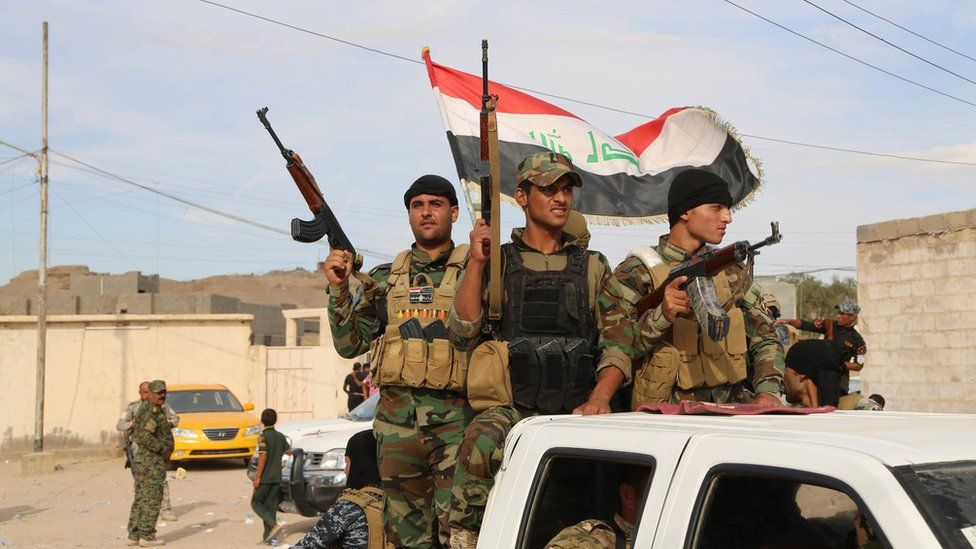Iraqi forces preparing for assault on IS-held Ramadi
- Published

Iraqi government forces say they have made significant advances around the Islamic State-held city of Ramadi and are preparing for a final assault.
The Joint Operations Command for Anbar province said troops and militiamen had reached the Albu Farraj area, on Ramadi's northern outskirts.
It is thought that there are between 600 and 1,000 IS militants in the city, and that they are well dug in.
On Tuesday, the US said it believed now was the time to retake Ramadi.
The city, which sits about 90km (55 miles) to the west of the capital Baghdad, was captured by IS in May in an embarrassing defeat for the Iraqi army that saw more than 275,000 people displaced.
'Conditions are set'
The Anbar Joint Operations Command declared in statement on Wednesday that the "hour of victory" against IS had come.
"Your heroic forces are advancing steadily from the northern side... they managed to reach Albu Farraj area," the statement added.
The head of the command, Maj Gen Ismail Mahalawi, told the AFP news agency the Iraqi flag had been raised on Albu Farraj bridge across the River Euphrates.
The offensive to recapture Ramadi had been making slow progress.
But on Tuesday Pentagon spokesman Col Steve Warren told reporters that Iraqi forces had advanced 15km (9 miles) towards Ramadi in the past two weeks and now "essentially encircled" the city, "squeezing in" from four directions.
US-led coalition aircraft - including, for the first time, F-16 fighters flown by Iraqi pilots - had carried out 52 strikes on IS positions over the past 10 days, he said.
Col Warren said IS had developed a strong defensive system in and around Ramadi, including using improvised explosive devices (IEDs) to create what amounted to minefields.
"This is going to be a tough fight," he added, "but we do believe the conditions are set."
After the fall of Ramadi, US defence secretary complained that the Iraqi army had "no will to fight". Since then, the US has stepped up its training of Iraqi forces and encouraged them to retake the city.
Col Warren also said US-led coalition air strikes had killed approximately 70 senior and mid-level IS leaders since May. In the last two months, eight top leaders were killed near Mosul, he added.